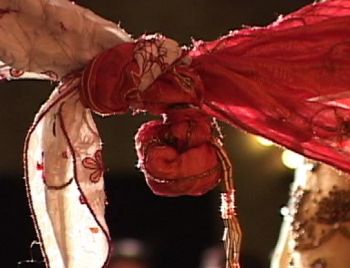A draft of Uniform Civil Code by some eminent citizens submitted to the Chairman of the Law Commission, Justice (retd) BS Chauhan has some important points, including proposal to allow same-sex marriages in India, and adoption and property rights for people irrespective of their sexual orientation.
The draft, written by lawyer Dushyant Arora, has been signed by eight eminent citizens signed – activist Bezwada Wilson, actor Gul Panag, journalist Nilanjana Roy, retired Major General S Vombetkere, historians Mukul Kesavan and S Irfan Habib and vocalist TM Krishna.
“This draft, defines marriage as “a legal union” between straight and gay couples. On many matters, like divorce, it aims to provide perfect equality between both partners, irrespective of gender,” Indian Express reported.
Some of the recommendations in the draft proposal for the Uniform Civil Code, as reported by Scroll.in are:
- The sexual orientation of a married couple or a couple living in a partnership will not be a bar to their right to adopt a child.
- No non-judicial decree on divorce will have any effect on a couple wanting to leave a marriage through legal means.
- While determining the best interest of a child in case of divorce, the religion or sexual orientation of a parent must not be relevant.
- Every child, whether adopted or biological, will have equal share in a deceased parent’s property, irrespective of gender, religion or sexual orientation.
- If this code comes into effect, the concept of Hindu Undivided Family will cease to legally exist, and all properties held by such families will be considered divided equally among those involved.
- All other personal laws shall be repealed.
Marriages are currently governed by personal laws, which depend on the religion. BJP has been pushing for a Uniform Civil Code, which will determine marriages for all faiths and will replace the personal laws currently. In July 2016, the NDA government had asked Justice Chauhan to help formulate a draft on Uniform Civil Code, that the government could consider later, following which Justice Chauhan had sought public comments.
- Post Amritsar Pride, Punjab’s LGBTQ Community faces Online Trolling, Hate and Threats - July 12, 2023
- Same-Sex Marriage against Indian “Sanskars”, Says UP Govt; High Court Rejects Plea by Lesbian Couple - April 15, 2022
- Karnataka introduces Reservations for Transgender People, 1% Jobs to be Reserved under all Categories - July 21, 2021


